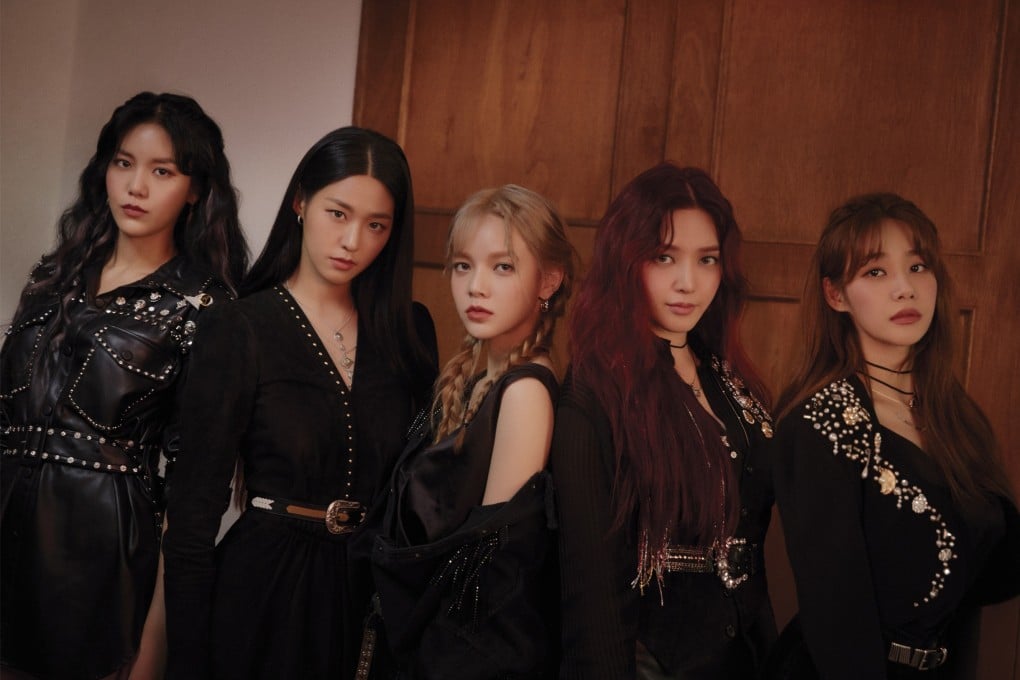K-pop and feminism: reality-TV contest Queendom shows cracks appearing in the sexy stereotype of girl bands
- Korean TV show Queendom pits girl bands against each other, and makes them name the best and worst acts in each round of the contest
- Instead of conflict there was a display of sisterhood, with bands supporting each other and one group stepping out of their usual sexy outfits

Nobody expected the K-pop competition show Queendom to become a turning point for the female idol scene in South Korea when it started airing in August 2019.
But the show broadened the horizons for female K-pop artists by pushing beyond the industry’s norm of presenting women almost exclusively as sexy and submissive.
For example, in one round of the TV show broadcast on South Korean music channel Mnet, Jimin of the girl group AOA appeared in a loose-fitting suit and loafers. She stared directly into the camera, bowed like a gentleman and rapped: “I won’t be a flower that sheds. I’m the tree.”
She then joined fellow AOA members, all wearing the same outfit, as they danced alongside drag queens in high heels. The band’s image and Jimin’s assertive message were a marked departure for AOA, who had been presented as a sexy girl group since the video for their first hit, Miniskirt, focused on their slender legs in tight miniskirts in 2014. At the time, they even unzipped their miniskirts on stage as part of their dance routines.
Queendom inadvertently became a reflection of the country’s vibrant feminist movement. And the six established K-pop acts involved in the show caused a stir with charismatic performances that redefined their identities through an earnest display of sisterhood.